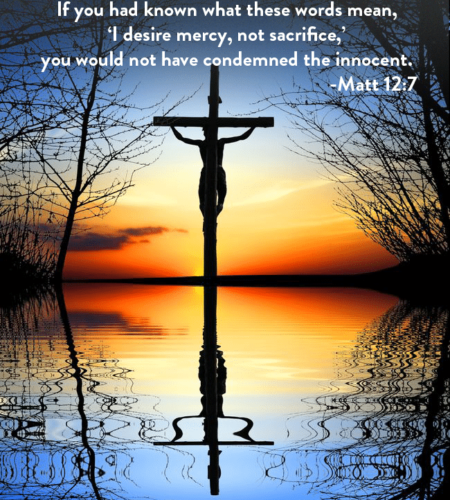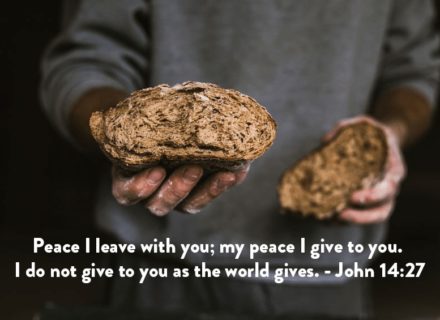The best definition I’ve ever heard of what it means to be a Christian is this: A Christian is a repentant scapegoater. In other words, the followers of Jesus confess that we could easily have been part of the crowd that called for His crucifixion. We recognize therefore that the violence at the cross was entirely human. What Jesus revealed to a disbelieving humanity was that God was not found with the crowd or the authorities but there on the cross, as a victim.
This understanding of why it took a crucified Christ to save us is the most important discovery that René Girard made. It took him completely by surprise because his research had been in literature, mythology and the rituals of ancient cultures. He never expected it to lead to a reading of the Judeo-Christian Scriptures that would open up a new way to understand Christ’s Passion, death and resurrection.
But now that you know a bit about what mimetic theory tells us about desire, conflict and scapegoating, you will understand how that knowledge helped Girard see the deepest meaning in the Passion narratives. This verse describing something that happened the day Jesus was crucified flashed for Girard like a neon sign: “Herod and Pilate became friends with each other; before this day they had been enemies.” (Luke: 23:12) You can easily recognize this as the result of scapegoating – we know it by its fruits, as the saying goes. A good scapegoat brings enemies together.
But what do the Gospel writers want us to think about this scapegoating event? Are we supposed to think that Jesus’ death was good and necessary because it brought two enemies together?

Remember, in this story Jesus is the good guy and the people who killed him are the bad guys! Forming friendships by killing someone is not supposed to be something we imitate – we are supposed to reject it!
Remember how the high priest Caiaphas justified Jesus’ death? He said that it is better that “one man die for the people than that the whole nation perish.” (John 11:49) Again, please realize we are not supposed to think, “Perfect – that’s what God wants me to do, justify killing someone for the greater good.” Quite the opposite! We are supposed to take Caiaphas as our model for what not to do.

It’s important to recognize that the religious and civil authorities of the day chalked Jesus’ crucifixion up as a win for the good guys. Jesus lost big time and the disciples fled in fear. But the Gospels insist that God was on Jesus’ side. From the Cross Jesus prayed, “Father, forgive them, for they know not what they do.” God was with Jesus, the victim of scapegoating violence, and God was with the perpetrators, the ones who celebrated Jesus’ death.
The Olive
Branch
Take A Breath with Us
Our weekly newsletter creates a space to take a breath. Once we slow down, we can see the way desire, imitation, and conflict operate in our lives and in the world, and begin to create peace. In addition to the newsletter, you will receive the free "Unlearn the Bible" ebook when you subscribe.
The fact that scapegoating continues to this day is evidence of how hard it is to leave behind the old ways of forming unity over against a victim. God has given us a new way to form community and achieve peace. Following Jesus’ example, we are called to embrace the foolish things of this world – to lose arguments, to love our enemies, and to beg our scapegoats for forgiveness.
Like the upside-down world reflected to us in a pond, the path to peace Jesus walked defies conventional wisdom. But it happened in the fullness of time that the biggest loser was actually the Word made flesh come to save us from ourselves. When repentant scapegoaters gather in Jesus’ name – the name of a victim of scapegoating – we recall our sins, praise God for His mercy, and practice inclusive, vibrant community where everyone has a place at the table.
In these polarized times, living the way of Jesus is more necessary than ever. As René Girard observed, “The time has come for us to forgive one another. If we wait any longer there will not be time enough.”

